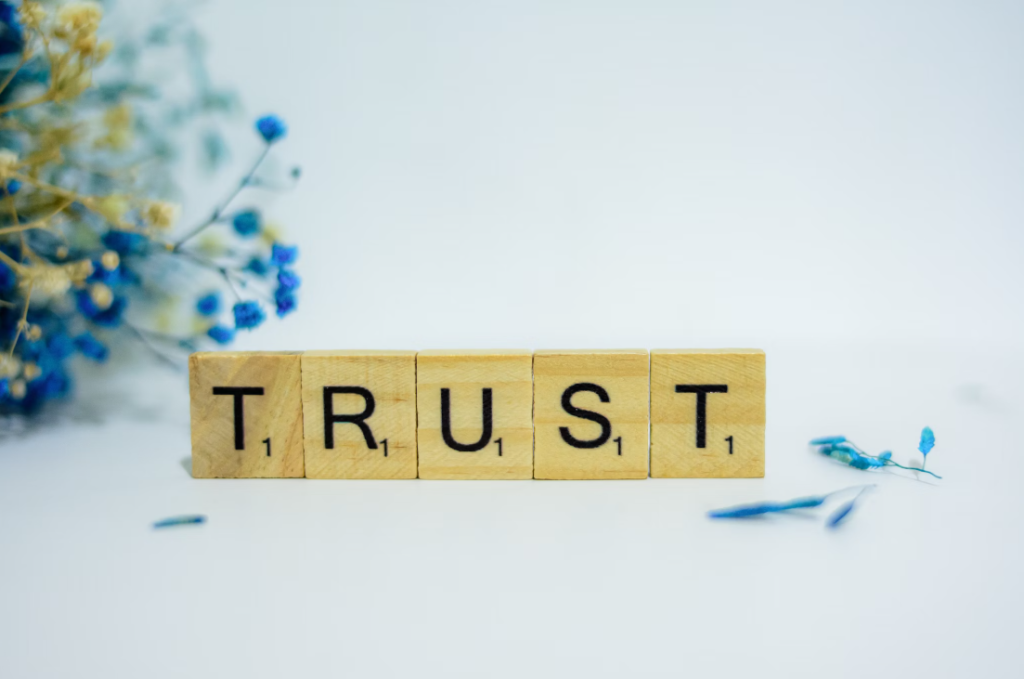
Introduction
In 2025, cultivating and maintaining healthy relationships has become more important than ever. As the pace of life accelerates and the world becomes more connected through technology, understanding how to build strong, resilient connections with the people around us is essential. Whether it’s a romantic partner, a close friend, or a family member, healthy relationships are the cornerstone of happiness and well-being. But with modern challenges and shifting dynamics, how do we ensure these relationships thrive? Let’s dive in.
Understanding Relationship Dynamics
The concept of relationships isn’t static. Over time, the way we relate to one another has evolved significantly. What was considered the norm a few decades ago—such as fixed gender roles or traditional family structures—has undergone transformation. Today, people are seeking deeper connections, more authenticity, and emotional fulfillment.
Types of Relationships
Romantic Relationships: In 2025, romantic relationships are centered around mutual respect, emotional intimacy, and shared goals. With increasing awareness about mental health and emotional well-being, couples are prioritizing communication and vulnerability over superficial aspects like appearance or social status.
Friendships: Friendships have also evolved. Today, friends often support one another in a variety of ways, from helping with career advancement to offering emotional support during tough times. The concept of “chosen family” is becoming increasingly common.
Family Relationships: Family relationships continue to be the foundation of our social structure. However, the traditional family model is being redefined as more people embrace diversity and seek out support systems outside of biological connections.
Challenges in Modern Relationships
Modern relationships are not without their hurdles. In fact, we face challenges today that didn’t exist just a few decades ago.
Social Media Influence
While social media connects us in unprecedented ways, it also creates new challenges for relationships. It can foster unrealistic expectations, promote comparisons, and contribute to feelings of inadequacy or jealousy. Managing social media’s role in a relationship is crucial for maintaining emotional health.
Work-Life Balance
With the rise of remote work and increased job demands, striking a balance between personal and professional life is harder than ever. Many people find themselves too tired or distracted to invest in meaningful connections, leading to emotional distance.
Emotional Disconnect
Even in close relationships, emotional disconnect can happen. People often get caught up in their own lives and fail to nurture the emotional bonds that keep relationships strong.
Building Trust: The Foundation of Healthy Relationships
Trust is the bedrock of any healthy relationship. Without it, doubt and suspicion creep in, leading to misunderstandings and hurt feelings. But how do we build trust in 2025?
Why Trust Matters
Trust allows individuals to feel safe, understood, and supported. It creates an environment where both parties can express themselves freely and be vulnerable without fear of judgment. Trust also strengthens resilience in relationships, enabling them to withstand challenges.
Ways to Build Trust
Trust is not built overnight. It requires consistent effort, transparency, and vulnerability. Being honest, following through on promises, and showing empathy are all critical components in building and maintaining trust.
Communication: The Key to Connection
Communication remains the most important tool in any relationship. Whether you’re talking with a partner, friend, or family member, effective communication fosters understanding and connection.
Active Listening
Active listening means truly hearing the other person’s words without judgment or interruption. It helps you understand their perspective, which is key in resolving conflicts and deepening emotional bonds.
Honest and Open Communication
Honesty goes hand in hand with transparency. In 2025, relationships that are open and honest about emotions, expectations, and boundaries are more likely to thrive.
Healthy Boundaries and Respect
Setting healthy boundaries is crucial for maintaining personal well-being while still fostering strong connections with others. But what does it mean to set boundaries?
What Are Boundaries?
Boundaries are limits you set in relationships that protect your physical, emotional, and mental space. They help prevent feelings of resentment, burnout, or being overwhelmed.
How to Set Healthy Boundaries
Setting boundaries requires self-awareness and confidence. It’s important to communicate your limits clearly and respectfully. Understanding when to say “no” and recognizing when you’re overextended can help preserve your energy and emotional health.
Empathy: Walking in Someone Else’s Shoes
Empathy plays a pivotal role in relationship dynamics. It’s the ability to understand and share the feelings of others, creating a sense of connection and mutual respect.
The Role of Empathy in Relationships
When you practice empathy, you create a deeper emotional bond with the other person. It helps you navigate difficult conversations and offers support in ways that feel truly meaningful.
Practicing Empathy in Daily Interactions
You can practice empathy in daily life by listening without judgment, validating emotions, and showing compassion when someone is going through a hard time.
Conflict Resolution: Turning Challenges into Opportunities
Conflict is inevitable in any relationship. However, it’s how you handle these moments that truly defines the strength of the relationship.
Understanding Conflict
Conflict arises when two people have differing needs, desires, or viewpoints. But conflict doesn’t necessarily mean the end of a relationship; in fact, it can often lead to growth if handled correctly.
Conflict Resolution Strategies
Effective conflict resolution involves remaining calm, listening actively, and working together to find a mutually beneficial solution. Taking time to cool off and then revisiting the issue can also be helpful.
Adaptability and Growth
Relationships are dynamic. The key to long-term success is adaptability—learning how to grow together rather than apart.
Changing Together
As we evolve, so too should our relationships. Embracing change as an opportunity for growth can strengthen bonds. Supporting each other through life’s transitions creates a shared sense of purpose.
Embracing Personal Growth
Personal growth is essential for healthy relationships. Individuals who strive to better themselves emotionally, mentally, and spiritually contribute positively to their relationships.
Digital Detox: Finding Balance
Technology, while incredibly helpful, can also take a toll on relationships. A digital detox is a way to reclaim your connection with the people around you.
Disconnecting to Reconnect
Spending time away from screens can help rekindle a sense of connection with others. Whether it’s a weekend getaway or a simple evening without phones, taking time off from digital distractions helps create more meaningful interactions.
Reducing Screen Time for Better Interaction
By limiting screen time, we make more room for face-to-face conversations. This simple act can deepen emotional bonds and promote healthier relationships.
Building Emotional Intimacy
Emotional intimacy is key to a fulfilling relationship. It’s the act of being vulnerable and sharing your inner world with someone else.
Creating Safe Spaces for Vulnerability
To cultivate emotional intimacy, both partners must feel safe expressing their deepest fears, desires, and dreams. This requires trust, patience, and a commitment to openness.
Sharing Emotional Needs and Desires
Communicating your emotional needs and desires creates a framework for understanding each other better. It ensures that both partners are aware of what makes the other feel valued and supported.
Quality Time: Strengthening Connections
In today’s fast-paced world, quality time is more valuable than ever. It’s not just about spending time together but truly making the most of it.
The Power of Shared Experiences
Shared experiences—whether it’s traveling, cooking, or simply watching a movie together—help create lasting memories that reinforce your connection.
Making Time for Each Other
Intentional quality time means prioritizing the relationship. Scheduling regular “dates” or activities that both parties enjoy helps strengthen the bond.

Practicing Appreciation and Gratitude
Gratitude is a powerful tool in relationships. Acknowledging the effort that others put into the relationship creates a sense of mutual respect.
Recognizing the Effort
Expressing appreciation helps both parties feel valued. A simple “thank you” can go a long way in maintaining a strong connection.
Expressing Gratitude Regularly
Gratitude should be a daily practice. Regularly telling your partner or friends how much you appreciate them fosters positive feelings and nurtures the relationship.
Supporting Each Other’s Individual Growth
In healthy relationships, both individuals should feel supported in their personal journeys.
Nurturing Independence in Relationships
While it’s important to stay connected, it’s equally important to encourage personal growth and independence. Supporting each other’s goals and interests allows for a healthy balance between togetherness and individuality.
Encouraging Personal Development
Encouraging your partner or friend to pursue their passions or work on personal growth fosters mutual respect and admiration.
Conclusion
In 2025, cultivating healthy relationships requires a combination of trust, communication, empathy, and respect. As relationships evolve with the times, the key to their success lies in adapting to the challenges we face, from social media pressures to the demands of modern life. By practicing healthy habits, setting boundaries, and prioritizing emotional intimacy, we can build meaningful connections that endure.

FAQs
- What are the most common challenges in relationships today?
- Social media influence, work-life balance, and emotional disconnect are common challenges.
- How can you improve communication in a relationship?
- Practice active listening, honesty, and openness. Regular check-ins also help maintain healthy communication.
- Why is trust important in relationships?
- Trust creates safety, fosters vulnerability, and strengthens resilience in relationships.
- How do you set healthy boundaries?
- Be clear about your limits and communicate them with respect. Boundaries protect emotional well-being and prevent resentment.
- What role does empathy play in a healthy relationship?
- Empathy helps you understand and support the emotional needs of others, strengthening emotional bonds.





